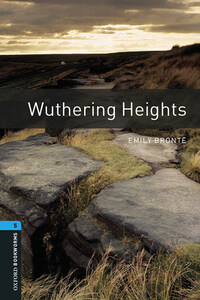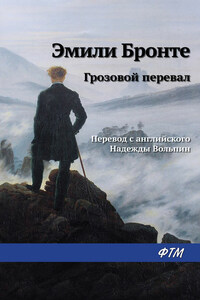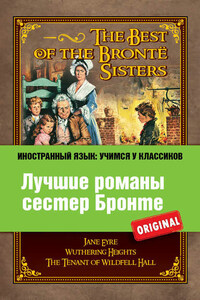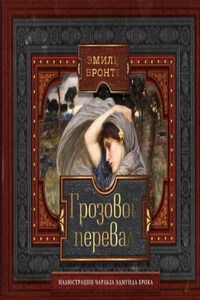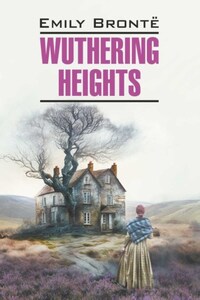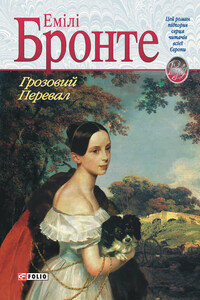Love is not always a happy experience. Nor do people who love each other always treat each other gently. We are all familiar with stories where two lovers are kept apart by outside forces – sometimes by their families, sometimes by the customs of their society.
In Wuthering Heights the main force that keeps the lovers apart is themselves. The characters in this story, just like real people, have weaknesses – and their weaknesses lead them into unhappiness. They are proud and selfish; they often have mixed feelings and are unable to make up their minds. For these reasons love often fails, but rarely as passionately and dramatically as in this story.
![]()
Great Clarendon Street, Oxford OX2 6DP Oxford University Press is a department of the University of Oxford. It furthers the University’s objective of excellence in research, scholarship, and education by publishing worldwide in Oxford New York Auckland Cape Town Dar es Salaam Hong Kong Karachi Kuala Lumpur Madrid Melbourne Mexico City Nairobi New Delhi Shanghai Taipei Toronto With offices in Argentina Austria Brazil Chile Czech Republic France Greece Guatemala Hungary Italy Japan Poland Portugal Singapore South Korea Switzerland Thailand Turkey Ukraine Vietnam
OXFORD and OXFORD ENGLISH are registered trade marks of Oxford University Press in the UK and in certain other countries
This simplified edition © Oxford University Press 2008
Database right Oxford University Press (maker)
First published in Oxford Bookworms 1992
2 4 6 8 10 9 7 5 3 1
No unauthorized photocopying
All rights reserved. No part of this publication may be reproduced, stored in a retrieval system, or transmitted, in any form or by any means, without the prior permission in writing of Oxford University Press, or as expressly permitted by law, or under terms agreed with the appropriate reprographics rights organization. Enquiries concerning reproduction outside the scope of the above should be sent to the ELT Rights Department, Oxford University Press, at the address above
You must not circulate this book in any other binding or cover and you must impose this same condition on any acquirer
Any websites referred to in this publication are in the public domain and their addresses are provided by Oxford University Press for information only. Oxford University Press disclaims any responsibility for the content
ISBN 978 0 19 479234 9
A complete recording of this Bookworms edition of Wuthering Heights is available on audio CD ISBN 978 0 19 479209 7
Typeset by Wyvern Typesetting Ltd, Bristol
Illustrated by: Jeff Spokes/Three in a Box
Word count (main text): 23,180 words
For more information on the Oxford Bookworms Library, visit www.oup.com/bookworms
www.oup.com/bookwormse-Book ISBN 978 0 19 478639 3e-Book first published 2012
MR LOCKWOOD’S STORY, 1801 TO 1802
At Thrushcross Grange
Mr Lockwood, the narrator
Ellen Dean, the housekeeper
At Wuthering Heights
Mr Heathcliff, the landlord of Thrushcross Grange
Mrs Cathy Heathcliff, a widow and Mr Heathcliff’s daughter-in-law
Hareton Earnshaw
Joseph, a servant
Zillah, a housekeeper
ELLEN DEAN’S STORY, 1770 TO 1802
Mr Earnshaw
Hindley Earnshaw, his son
Catherine Earnshaw, his daughter
Heathcliff, a gipsy boy
Frances, Hindley’s wife
Mr and Mrs Linton
Edgar Linton, their son
Isabella Linton, their daughter
Hareton, Hindley Earnshaw’s son
Cathy, Edgar Linton’s daughter
Linton, Heathcliff’s son
Joseph, a servant
Ellen Dean, a servant
Zillah, a housekeeper
I HAVE JUST returned from a visit to my landlord, Mr Heathcliff. I am delighted with the house I am renting from him. Thrushcross Grange is miles away from any town or village. That suits me perfectly. And the scenery here in Yorkshire is so beautiful!
Mr Heathcliff, in fact, is my only neighbour, and I think his character is similar to mine. He does not like people either.
‘My name is Lockwood,’ I said, when I met him at the gate to his house. ‘I’m renting Thrushcross Grange from you. I just wanted to come and introduce myself.’
He said nothing, but frowned, and did not encourage me to enter. After a while, however, he decided to invite me in.
‘Joseph, take Mr Lockwood’s horse!’ he called. ‘And bring up some wine from the cellar!’ Joseph was a very old servant, with a sour expression on his face. He looked crossly up at me as he took my horse.
‘God help us! A visitor!’ he muttered to himself. Perhaps there were no other servants, I thought. And it seemed that Mr Heathcliff hardly ever received guests.
His house is called Wuthering Heights. The name means ‘a windswept house on a hill’, and it is a very good description. The trees around the house do not grow straight, but are bent by the north wind, which blows over the moors every day of the year. Fortunately, the house is strongly built, and is not damaged even by the worst winter storms. The name ‘Earnshaw’ is cut into a stone over the front door.
Mr Heathcliff and I entered the huge main room. It could have been any Yorkshire farmhouse kitchen, except that there was no sign of cooking, and no farmer sitting at the table. Mr Heathcliff certainly does not look like a farmer. His hair and skin are dark, like a gipsy’s, but he has the manners of a gentleman. He could perhaps take more care with his appearance, but he is handsome. I think he is proud, and also unhappy.
